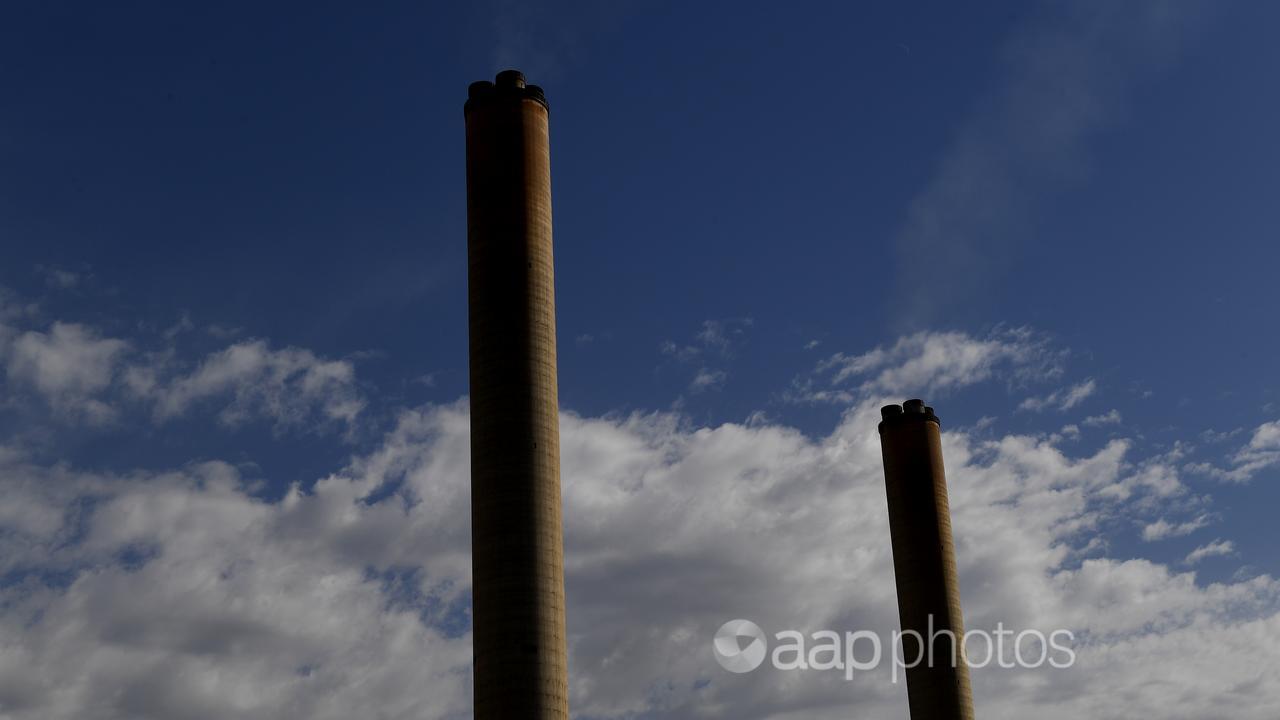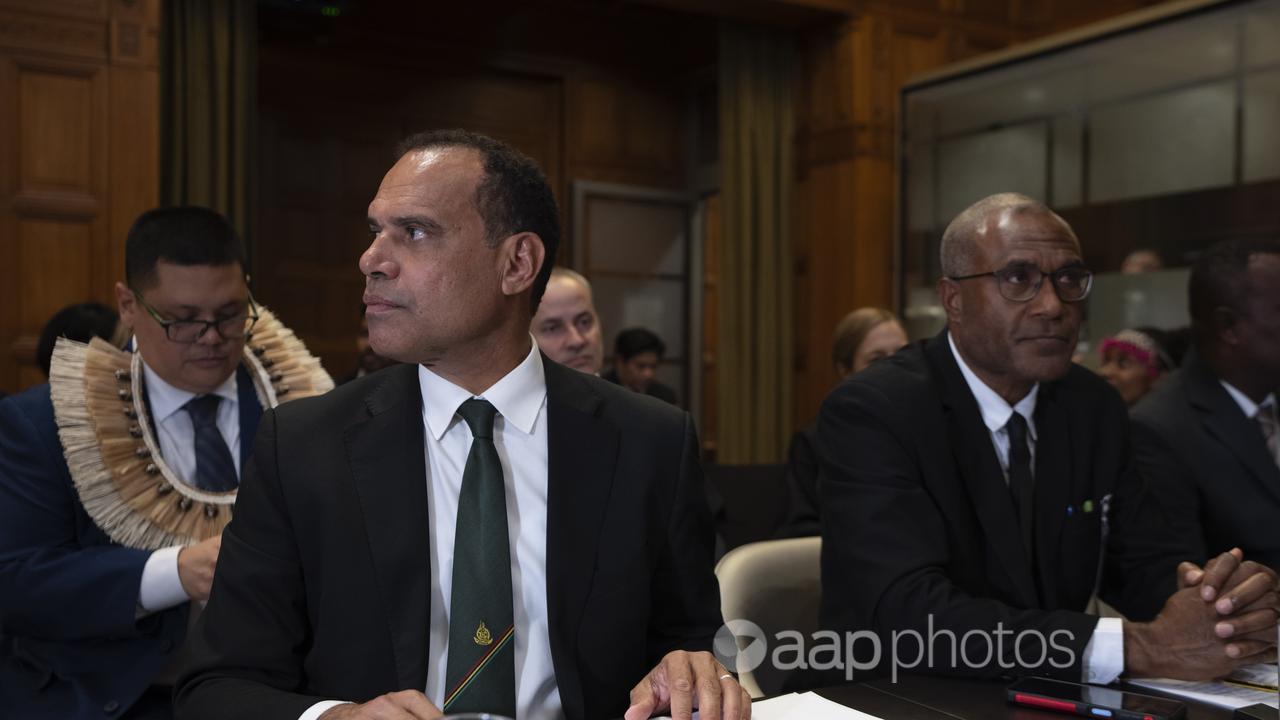Pacific islanders and environment groups have criticised Australia for speaking out both sides of its mouth on climate change and commitment to the region.
Australia reiterated its commitment to a landmark international environmental agreement to reduce carbon emissions but argued high-emitting countries should not have further legal responsibilities.
It came in response to Vanuatu spearheading a push for the world’s top court to advise whether states have a legal obligation to address climate change and any consequences for failing to act.
International Court of Justice advisory opinions are non-binding but carry significant legal and political weight.
Those most vulnerable to climate change – predominantly Pacific nations – are pushing for finance and compensation as they face an existential threat from rising tides.
Australia was taking “urgent and ambitious climate action”, Attorney-General’s Department general counsel Jesse Clarke told the court on Tuesday (AEDT).
“Climate change poses the single greatest threat to the livelihoods, security and wellbeing of the peoples of small island states, including Pacific island states,” Mr Clarke said.
But Solicitor-General Stephen Donaghue argued further legal obligations should not extend beyond what was covered by international climate treaties such as the United Nations Framework Convention on Climate Change and the Paris Agreement.

While most states recognised a responsibility to prevent transboundary harm – activities by one country that affect another – this did not extend to environmental harm caused by greenhouse gases, he said.
This was because of the cumulative build-up of the gases over a long period “for which many different states and countless private actors are responsible”, he said.
“Furthermore, the harm that results is widespread rather than localised and may be experienced in places far removed from the source of emissions … rather than simply in neighbouring states.”
If the court found a further implicit legal obligation for states, remedies were already outlined in climate treaties and any consequences would arise from those articles, not new ones, he said.
Vanuatu’s special envoy for climate change Ralph Regenvanu opened proceedings ahead of two weeks of submissions from some 100 states and a dozen international organisations.
“We find ourselves on the front lines of a crisis we did not create, a crisis that threatens our very existence,” he said.

“The outcome of these proceedings will reverberate across generations, determining the fate of nations like mine and the future of our planet.”
Australia “completely broke that trust” with the Pacific after acknowledging the impact of climate change and the need to do more before arguing there was no legal obligation to do more, Greenpeace Australia Pacific’s Shiva Gounden said.
“It wasn’t really surprising from the communications and the conversations we’ve had with the Australian government that they were going to take this line of attack,” she said.
“I just know that some of the Pacific governments thought it would be a little bit stronger in terms of their support for the Pacific islands.”
The world has warmed 1.3C since pre-industrial times.
The legally binding Paris Agreement aims to limit warming to “well below” two degrees to prevent the worst of a climate catastrophe but there are doubts as to whether the biggest nations will meet their commitments.




















